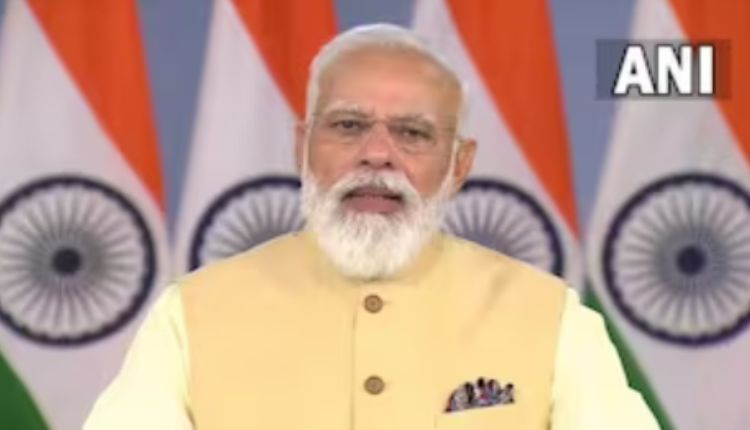The Controversial BBC Documentary India: The Modi Question
A controversial BBC documentary revisits allegations of Indian Prime Minister Narendra Modi’s role in the 2002 Gujarat riots that killed more than 1,000 Muslims. It cites a confidential UK government report that holds him responsible for the violence.
The Indian government has condemned the documentary as a propaganda piece that forwards a discredited narrative. However, digital rights activists have found ways to circumvent social media platform bans and view the document.
Part One
The two-part bbc documentary on modi series India: The Modi Question has been subject to much controversy in India, where the government has banned its broadcast and forced social media platforms to remove online content. The film explores allegations that Modi failed to act effectively to prevent sectarian violence during the 2002 Gujarat riots, in which hundreds of Muslims were killed. While the Indian government has denied these claims, many BJP politicians have accused the BBC of having an anti-Modi agenda.
The documentary examines the claims made in the secret report written by the British foreign ministry, which states that the Vishwa Hindu Parishad was responsible for the riots, and that Modi gave orders to police not to intervene. It also states that a senior minister in the Gujarat state government, Haren Pandya, testified to having received these instructions from Modi, but later was hacked to death. The documentary also claims that a Muslim leader named Ehsan Jafri called Modi to request assistance from the police, but that he did not receive a response.
Several witnesses in the case have claimed that Modi was directly involved in the riots, and that he ordered the police to stand by and watch as violence broke out. The documentary questions whether this is true, and notes that the highest level of justice exempted Modi from any charges. The documentary also states that the riots were a part of a wider campaign by the RSS, which is the ideological parent organization of the ruling BJP party.
The film has been criticized in the UK by Conservative MP Bob Blackman, who said it was a “hatchet job”, and Rami Ranger, a member of the House of Lords, who wrote to the BBC demanding to know if its Pakistani-origin staff were behind the documentary. However, the BBC has defended its work, and says that it does not intend to withdraw the programme from air in the UK.
In addition to its UK broadcast, the documentary has been available on various streaming services such as YouTube and Netflix, though the latter has removed it from its platform after a request by the Indian government. Some Indian viewers have been able to access it through the use of a VPN service.
The BBC has defended the documentary, saying that it was “rigorously researched according to our highest editorial standards”. Tax officials in India have raided the BBC’s offices in New Delhi and Mumbai after the programme aired, but it has denied the allegations of censorship. The raids come as the UK prepares to begin negotiations on a trade deal with India. These negotiations will take place in the coming months. Both countries are highly dependent on each other economically, and the UK has already approved a multi-billion dollar investment in India.
Part Two
The BBC’s two-part documentary, India: The Modi Question, aired in January in the UK. It examines the Indian prime minister’s role in the 2002 anti-Muslim riots in his home state of Gujarat, in which more than 1,000 people died. The documentary cites a British government report that held Modi responsible for the riots and his failure to intervene effectively, but he has denied the accusations. The Indian government has since banned the documentary from being shown in India and blocked sharing of clips on social media sites. It has also invoked emergency powers to block access to the BBC’s online content.
The BBC has been fighting back against the government’s attempt to censor its reporting. The company’s offices in New Delhi and Mumbai have been searched by tax officials, and a criminal investigation into the BBC has been launched over claims it violated foreign exchange regulations. The BBC has refused to apologise for the documentary, which it says was “rigorously researched according to the highest editorial standards”.
Part Two of the documentary focuses on Muslims in modern India. It examines the treatment of minorities under Modi’s rule, and explores how he has used the issue to galvanise support for his Hindu nationalist agenda. The series also looks at the dilution of Article 370 in Kashmir and changes to the citizenship act matrix, both of which have caused controversy and unrest amongst Muslim communities.
Many politicians have criticised the documentary for its bias and for revisiting allegations from more than two decades ago. Conservative MP Bob Blackman called it a “hatchet job”, while Labour peer Rami Ranger wrote to the BBC demanding to know “if your Pakistani-origin staff were behind this nonsense”. The BBC has denied that its staff are biased and said it would continue to defend the integrity of its journalism, despite the pressure from the Indian government.
The episode demonstrates that the Indian government is highly sensitive to any criticism of its policies and has become increasingly authoritarian. It has a history of being thin-skinned when it comes to criticism, but this documentary is particularly challenging for the Modi administration because it comes from an international media outlet with a lot of credibility. It also comes after years and years of local journalism by Indian publications that have looked into those same allegations, so it has really got under the skin of the government.
Conclusions
The Indian government has banned a BBC documentary, calling it “propaganda.” The two-part series, India: The Modi Question, examines allegations that the prime minister’s leadership in the state of Gujarat contributed to religious violence in 2002 that left more than 1,000 people—mostly Muslims—dead. Although the prime minister has denied involvement, the allegations have lingered even after his Bharatiya Janata Party won a landslide victory in 2014 and secured him a second term.
The documentary claims that Modi encouraged Hindu mobs and told police to stand back as Muslim houses were attacked. It also airs old interviews with Modi, including one in which he denied ordering police to stand aside during the violence. The documentary also quotes a former British foreign secretary who said the riots bore the marks of ethnic cleansing. In addition, the documentary says that an unpublished UK government report found that Modi was responsible for a climate of impunity that enabled the violence.
In response, the prime minister’s office denounced the film as propaganda and accused the BBC of a lack of objectivity. The government also demanded that social media platforms take down clips of the documentary. In February, tax officials raided the BBC’s offices in New Delhi and Mumbai. India’s financial crime agency has since opened an investigation into the broadcaster for alleged violations of foreign exchange laws.
After the raids, some rightwing social media accounts slammed the BBC for biased reporting. However, many Indians supported the documentary’s investigation into Modi’s role in the riots. The controversy has also highlighted how the Indian government uses threats to limit free speech.
While the government’s official reason for banning the documentary is that it could undermine India’s sovereignty and integrity, the real issue appears to be that it is not comfortable with criticism of its leader. The documentary is a reminder that it is important for democratic societies to have independent journalists and broadcasters who can present facts, not partisan opinions.
The BBC has argued that the ban is unjust and violates freedom of expression. It says it is a setback to the government’s efforts to protect citizens from false information and to promote trust in news sources. The government’s attempts to silence the BBC also undermine the nation’s democracy and threaten future generations of journalists. The country needs a free press in order to thrive and grow. We need journalists to tell the stories of its rich diversity and to hold leaders accountable for their actions. The government should focus its energies on creating a safe and stable environment in which journalists can work freely and independently. Then, it will be able to focus on the needs of its citizens. Featured Image Credits: Getty Images.




